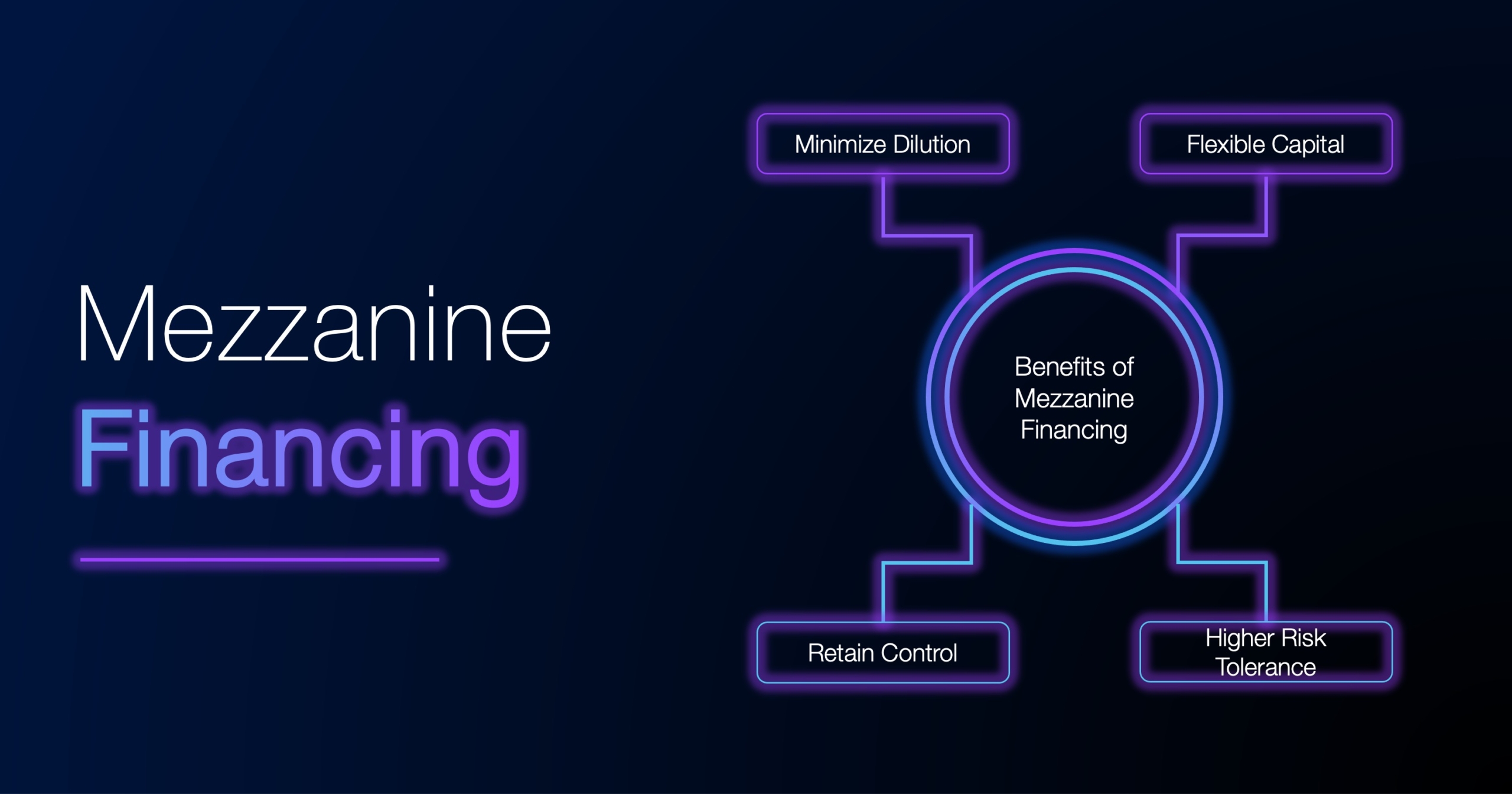How to Use Mezzanine Financing (Sub-Debt) to Avoid Dilution
Raising capital is one of the most critical challenges for growing businesses, but with capital comes the question: How do you raise funds without giving up too much equity? For companies that want to avoid diluting their ownership, mezzanine financing (also known as subordinated debt) offers a flexible and attractive option.
Mezzanine financing combines the benefits of debt and equity, providing businesses with the capital they need while allowing them to retain control. In this blog, we’ll explore what mezzanine financing is, how it works, and how it can help you grow your business without giving away significant ownership.
We match our clients with our network of lenders and advise them through the credit financing process. Learn more ►
What Is Mezzanine Financing?
Mezzanine financing, often referred to as subordinated debt, is a hybrid form of capital that sits between senior debt (like bank loans) and equity (ownership stakes) in the capital structure of a company. It is called subordinated debt because, in the event of liquidation, mezzanine financing is repaid after senior debt but before equity holders receive anything.
It is structured as debt but often includes equity kickers like warrants or options that allow lenders to share in the upside if the business performs well. However, the key advantage is that it doesn’t require giving up significant equity upfront, making it an ideal solution for business owners who want to retain control.
How Mezzanine Financing Works
Unlike traditional loans, which typically come with strict repayment schedules and covenants, mezzanine financing offers a more flexible approach. The interest rate on mezzanine debt is usually higher than senior debt due to its subordinate position, but it provides the borrower with access to substantial capital without immediately diluting equity.
Here’s how it typically works:
Loan Issuance: The business receives a loan from the mezzanine lender. This debt is often structured with interest payments, but it may also allow for interest to be deferred or “paid-in-kind” (PIK), meaning the interest is added to the principal rather than being paid out in cash immediately.
Equity Participation: In addition to interest, the lender may receive warrants or options that give them the right to buy shares in the company at a later date. However, this equity participation is usually small, allowing the business owner to maintain control.
Flexible Repayment: Mezzanine debt often has flexible terms, including deferred payments or extended maturities, which can provide businesses with breathing room to grow before having to repay the debt.
Subordinate to Senior Debt: In case of bankruptcy or liquidation, the mezzanine lender is repaid after senior debt holders but before equity investors, making it riskier for the lender, which justifies the higher interest rates.
Benefits of Mezzanine Financing

Minimize Equity Dilution
One of the most compelling reasons to choose mezzanine financing is that it limits the dilution of ownership. Unlike issuing new shares, which reduces the equity stake of existing shareholders, mezzanine debt allows business owners to retain more ownership. This is particularly valuable for companies that are growing and expect their valuation to increase in the future. Retaining equity can result in a greater payout for the founders and early investors when the company eventually exits, whether through an acquisition or IPO.
Flexible Capital for Growth
Mezzanine financing is often used to fund growth initiatives like acquisitions, expanding operations, or entering new markets. It provides a source of flexible capital without the strict covenants and financial ratios that traditional bank loans typically require. This flexibility allows companies to pursue growth opportunities without being constrained by rigid loan agreements.
Retain Control of the Business
Issuing equity to raise capital means giving up partial control of your company to new shareholders, who may demand voting rights or influence over strategic decisions. By choosing mezzanine financing, you can maintain full control of your company’s operations and strategic direction while still securing the funding you need to grow.
Higher Risk Tolerance from Lenders
Mezzanine lenders are typically more willing to take on risk than traditional senior debt lenders. They are often more focused on a company’s growth potential than on immediate profitability or collateral, making mezzanine financing an attractive option for businesses that may not qualify for traditional loans but still have strong growth prospects.
Interest May Be Tax-Deductible
Because mezzanine financing is structured as debt, the interest payments are typically tax-deductible, which can reduce the overall cost of capital compared to equity financing. This tax benefit makes mezzanine financing a cost-effective solution for businesses looking to raise capital.
When Should You Consider Mezzanine Financing?
Mezzanine financing is particularly well-suited for companies that are in a growth phase and need substantial capital but are reluctant to give up significant equity or control. Here are some common scenarios where mezzanine financing may be the right choice:
Acquisitions: If you’re looking to acquire another company but don’t want to dilute your ownership by issuing new equity, mezzanine financing can provide the necessary capital to complete the deal.
Expansion: For companies that need capital to expand operations, enter new markets, or develop new products, mezzanine financing can offer the funding needed without requiring immediate equity dilution.
Leveraged Buyouts: Mezzanine financing is often used in leveraged buyouts (LBOs), where a company is acquired using a combination of debt and equity. In these situations, mezzanine debt can help bridge the gap between senior debt and equity.
Recapitalization: Mezzanine financing can be used to recapitalize a business, giving owners the ability to take cash out of the business while maintaining ownership and control.
Key Considerations
While mezzanine financing offers many advantages, it’s essential to consider the following factors before pursuing this option:
Cost: Mezzanine debt comes with higher interest rates than senior debt due to the increased risk for lenders. Make sure your business has the cash flow to cover the interest payments.
Equity Participation: While mezzanine lenders typically receive less equity than venture capitalists or equity investors, they often still require warrants or options. Be sure to negotiate these terms carefully to limit dilution in the future.
Long-Term Strategy: Mezzanine financing is best suited for companies with a clear growth strategy and the potential for future profitability. Before securing mezzanine financing, ensure your business has a solid plan for repayment or refinancing when the debt matures.
Mezzanine financing offers a powerful solution for businesses looking to raise capital without significantly diluting equity. By combining the flexibility of debt with the potential for equity participation, mezzanine financing allows business owners to maintain control while securing the capital needed to fuel growth.
If you’re considering raising capital and want to explore how mezzanine financing can help your business grow without giving away too much ownership, ClearThink Capital can guide you through the process. Our team of experts can help you find the right financing structure for your business’s unique needs, ensuring you can reach your goals while retaining control.
Let’s discuss how we can assist you with mezzanine financing. Get in touch with our team below.









